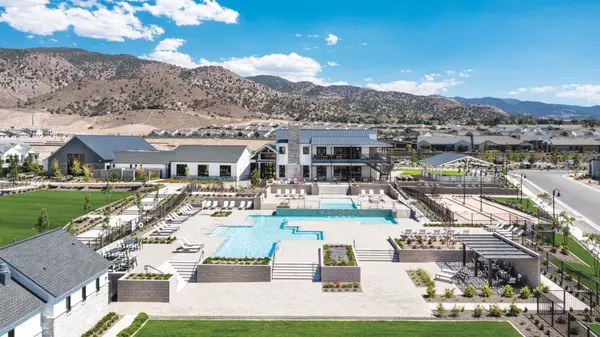Budgeting for Your Dream Home with Dave Ramsey

Dreaming of a white picket fence, a sprawling backyard, or a cozy fireplace in a home that's truly yours? You're not alone. Homeownership is a cornerstone of the American Dream. But in a world where financial pitfalls are common, how do you responsibly save for that dream home? Enter Dave Ramsey, the man who has become synonymous with financial peace and living debt-free. Let's explore how Ramsey’s no-nonsense budgeting strategies can help you lay the foundation for the keys to your own kingdom.
Understanding Dave Ramsey’s Approach to Finances:
Dave Ramsey’s philosophy is simple yet powerful: avoid debt, budget with purpose, and save diligently. By applying his "Seven Baby Steps" to the process of buying a home, you're not just purchasing a property; you're investing in your financial future.
Setting Your Home-Buying Budget:
First things first, know what you can afford. Ramsey suggests that your monthly mortgage should be no more than 25% of your take-home pay. In the realm of mortgages, he champions the 15-year fixed-rate option. This may seem daunting, but it's about playing the long game—paying less interest and building equity faster.
Saving for a Down Payment:
The gold standard for a down payment, according to Ramsey, is 20% of the home's cost. This might sound steep, but it's a surefire way to avoid PMI, which can tack on a significant amount to your monthly payment. To save this efficiently, Ramsey would direct you to his tried-and-true "envelope system" or a designated "sinking fund" where you save specifically for your down payment.
The Emergency Fund:
Ramsey would be the first to tell you not to even think about buying a house without a fully funded emergency fund. Ideally, this should cover three to six months of expenses. When you're a homeowner, surprises are guaranteed, and they're rarely cheap.
Eliminating Debt with the Debt Snowball Method:
In true Ramsey fashion, before you even consider signing a mortgage, you should be debt-free. Using his debt snowball method—paying off debts from smallest to largest—you'll free up more money to save for your home and avoid the risk of stretching yourself too thin.
Navigating the Mortgage Process:
Dave Ramsey recommends getting pre-approved for a mortgage to clarify your budget and show sellers you're serious. He also advises using a mortgage calculator to understand the future payments in the context of your budget.
After the Purchase – Keeping Your Home (and Budget) in Check:
Your dream home can turn into a nightmare if you neglect maintenance or property taxes. Dave recommends setting aside 1-3% of your home's value each year for repairs. Continue to budget wisely, just as you did to get your home. Homeownership adds new categories to your budget, but the same principles apply.
Conclusion:
Buying your dream home is exciting, but it should not come at the expense of your financial peace. By applying Dave Ramsey's principles, you're not just buying a house—you're building a home on a solid financial foundation. Remember, patience and diligence are your allies. Your dream home is not just a purchase; it’s an investment in your family’s future and financial security.
Start today. Whether it's setting up that first budget, slashing debts with the snowball method, or opening a savings account for your down payment, the path to your dream home starts with a single, budgeted step.
Ready to Begin?
For more resources on Dave Ramsey’s financial advice, or to start budgeting like a pro, visit [Insert Relevant Link to Ramsey's Resources or Your Own Resources/Services]Frequently Asked Questions (FAQs):
Q: What is the 50/30/20 budget rule?
A: The 50/30/20 rule is a budgeting guideline that suggests you spend 50% of your after-tax income on needs, 30% on wants, and 20% on savings and debt repayment. For home budgeting, it ensures you're living within your means while saving for the future.
Q: How much house can I afford if I make $70,000 a year?
A: Following Dave Ramsey's advice, on a $70,000 salary, aim for a mortgage that doesn't exceed 25% of your monthly take-home pay. This typically means looking for homes that would have a mortgage payment of around $1,100 per month or less.
Q: How do I start a budget for my home?
A: Begin by listing all income and expenses. Allocate funds for savings, necessities, and a few wants, while being mindful of future home-related costs. Prioritize saving for a down payment and emergency fund.
Q: How do I budget my monthly home expenses?
A: Categorize your expenses into mortgage/rent, utilities, insurance, taxes, and maintenance. Use budgeting tools to track these and adjust as necessary to avoid overspending.
Q: How do I start a budget with no money?
A: Starting with no money means first budgeting for basic needs and minimal expenses. Prioritize building a small emergency fund, then gradually save for other financial goals.
Q: What credit score is needed to buy a $300K house?
A: While you can get a mortgage with a credit score as low as 620, aiming for a score above 700 will generally secure more favorable rates.
Q: Can I afford a 300k house on a 60k salary?
A: It's not recommended, as the monthly payments may exceed the 25% of take-home pay guideline. A larger down payment or finding a less expensive home would be better suited for that salary.
Q: What mortgage can I afford on a 50k salary?
A: On a $50k salary, you're looking at a home that would have a mortgage payment of around $1,000 per month, which means a less expensive home or saving a substantial down payment to make a $300k home affordable.
Q: Can you live off $1000 a month after bills?
A: Living on $1000 a month after bills is possible but requires a minimalist lifestyle and strict budgeting, especially in areas with a lower cost of living.
Q: How do I not live paycheck to paycheck?
A: Create a zero-based budget, cut unnecessary expenses, build an emergency fund, and focus on paying off debt. Any extra income should go towards savings or investments.
Q: What is a minimalist budget?
A: A minimalist budget focuses on essential spending and eliminates unnecessary expenses. It’s about simplicity and prioritizing financial freedom over material possessions.
Q: Can I afford a 300k house on a 40k or 50k salary?
A: It would be challenging and could stretch your finances thin. Ramsey's advice would be to lower the home price or increase the down payment to keep your mortgage within the recommended budget limits.
Q: What is a perfect credit score?
A: The highest credit score possible on the FICO scale is 850, considered perfect. However, achieving a score above 760 typically nets you the same benefits as a perfect score in the eyes of lenders.
Categories
Recent Posts











